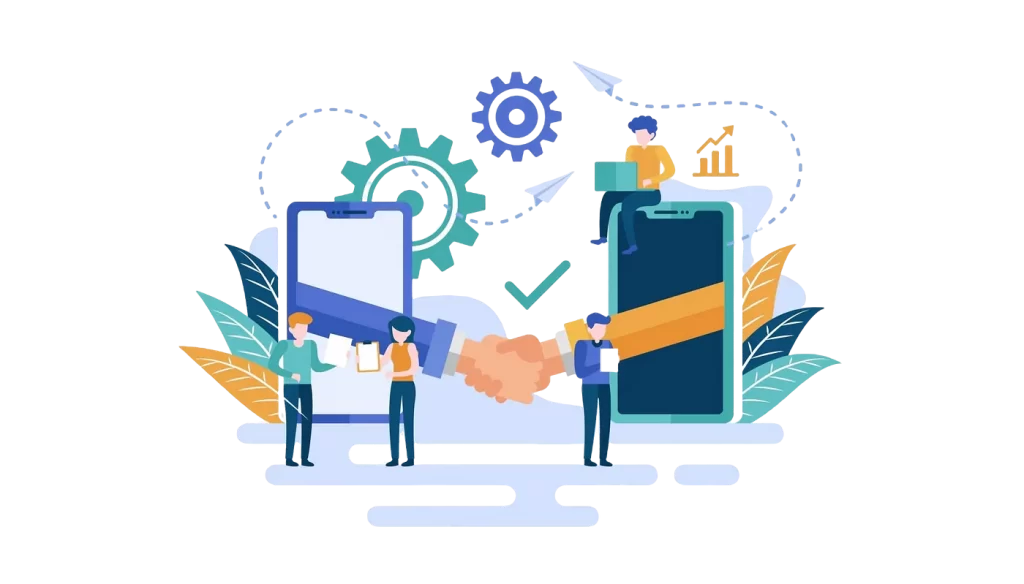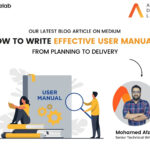By Isuru Wickramasuriya
Digital BSS Blog Series #1

Introduction
A Customer Relationship Management (CRM) system is more than just a tool; it’s a strategic asset that empowers businesses to cultivate lasting and profitable relationships with their customers. By centralizing customer information, streamlining processes, and providing valuable insights, CRM systems play a pivotal role in driving sales, enhancing customer satisfaction, and fostering overall business growth.
CRM systems find applications across a wide range of industries and business functions. From sales and marketing to customer service and support, CRM is a versatile tool that can be tailored to meet the specific needs of any organization. Some common use cases include:
- Sales Force Automation: Streamlining sales processes, tracking leads, and managing opportunities.
- Marketing Automation: Personalizing campaigns, nurturing leads, and measuring marketing effectiveness.
- Customer Service Management: Tracking support tickets, resolving inquiries, and improving customer satisfaction.
- Field Service Management: Scheduling appointments, tracking technicians, and optimizing service delivery.
The Evolution of CRM: From Traditional to Modern
The CRM landscape has undergone a significant transformation over the years, evolving from rudimentary contact management systems to sophisticated platforms that leverage cutting-edge technologies. Initially, CRMs were primarily focused on organizing customer data and tracking interactions. However, as businesses recognized the potential of CRM to drive revenue and improve customer experiences, the systems became more sophisticated and integrated with other business applications.
The emergence of modern CRM systems marked a paradigm shift. These platforms incorporated advanced features such as artificial intelligence, machine learning, and predictive analytics, enabling businesses to gain deeper insights into customer behaviour and preferences. Additionally, modern CRMs often integrate with social media, email marketing, and other digital channels, providing a unified view of customer interactions across multiple touchpoints:
The Need for Modern CRM
While traditional CRMs have served their purpose, they may struggle to keep pace with the rapidly changing business landscape. The limitations of older systems can hinder businesses’ ability to:
- Personalize customer experiences: Deliver tailored interactions that resonate with individual customers.
- Leverage data-driven insights: Make informed decisions based on real-time analytics and predictive models.
- Integrate with emerging technologies: Embrace innovations such as AI, IoT, and automation.
- Scale effectively: Support growth and expansion without compromising customer service quality.
To address these challenges, businesses must upgrade their CRM systems to modern platforms that offer advanced capabilities and align with contemporary best practices.
Key Features of Modern CRM Systems
Modern CRM systems are designed to empower businesses to achieve their customer relationship goals. Key features and functionalities include:
- AI-powered automation: Streamlining repetitive tasks and improving efficiency.
- Predictive analytics: Forecasting customer behaviour and identifying opportunities.
- Omnichannel integration: Providing a seamless customer experience across all channels.
- Scalability: Accommodating growth and expansion without compromising performance.
- Data security: Protecting sensitive customer information and complying with regulations.
- Standardization and Interoperability: Ensuring seamless integration with other systems and avoiding vendor lock-in.
Standardization and Interoperability
One of the most critical aspects of modern CRM systems is their ability to integrate seamlessly with other business applications and avoid vendor lock-in. Standardization plays a crucial role in achieving this goal. By adhering to industry recognized standards, CRM systems can:
- Exchange data effortlessly: Facilitate the flow of information between CRM and other systems, such as ERP, marketing automation, and e-commerce platforms.
- Integrate with third-party solutions: Expand functionality and capabilities by connecting to best-of-breed applications.
- Avoid vendor lock-in: Reduce reliance on a single vendor and maintain flexibility in choosing technology solutions.
- Future-proof investments: Ensure that CRM systems remain compatible with emerging technologies and industry trends.
Some of the key standards that CRM systems often adhere to include:
- TMF Alignment: Adhering to Target Operating Model (TMF) standards for telecom industry processes and data models, ensuring compatibility and interoperability with other TMF-compliant systems.
- RESTful APIs: Enabling communication and data exchange between applications over the internet.
- Distributed Architecture: Enabling scalability, fault tolerance, and flexibility by distributing CRM components across multiple microservices.
The Power of Axonect CRM
So, how can a TMF-aligned, AI-powered CRM change the game? Let’s break it down.
- Standardization for Efficiency: When your CRM follows TMF guidelines, it standardizes all processes, making sure everyone is following best practices. This means smoother workflows, fewer errors, and a consistent approach across your entire business.
- AI-Powered Predictive Insights: One of the most significant benefits of AI in CRM is its ability to predict customer behaviour. With advanced analytics, the system can tell you which customers are most likely to buy, churn, or respond to certain offers.
- Automation for Timesaving: Routine tasks like scheduling follow-ups, sending reminder emails, or updating customer records can all be automated.
Why Our Axonect CRM Stands Out

Comprehensive Product Suite
Axonect CRM offers a comprehensive set of features that cover the entire customer lifecycle, from lead generation to order fulfillment and payment collection. Our platform includes the following key modules:
- Lead to Opportunity: Contact management, account management, lead generation, deal management, and lead scoring.
- Opportunity to Quote: Complete CPQ (Configure, Price, Quote) process, sales funnel management, and sales order generation.
- Product Management: Product catalog, product bundling, complex pricing plans, discounts, taxes, price alterations, and price book creation.
- Quote to Order: Catalog-driven order management, order capture, validation, decomposition, enhancement, fulfillment, workflow creation, and failed order retries.
- Order to Cash: Subscription inventory, rating and charging, billing, and invoicing, automated billing, invoice dispatch, aging and dunning, payment, and collection interfaces.
TMF Alignment and Interoperability
At ADL, we prioritize TMF standardization to ensure seamless integration and data exchange with other industry-specific systems. Our CRM platform is designed to be fully compatible with ODA standards, allowing for easy interoperability and data sharing. By adhering to TMF guidelines, we provide businesses with a robust and scalable solution that can seamlessly integrate into their existing IT infrastructure.
AI-Driven Insights and Automation
As a subsidiary of Axiata, we leverage a proven set of machine learning models to deliver valuable insights that drive business growth. Our CRM system provides actionable recommendations on next best offers, customer churn propensity, and other critical metrics. Additionally, we are heavily investing in Gen-AI capabilities to automate tasks such as sales lead communications, further enhancing efficiency and productivity.
Distributed Architecture and Scalability
Axonect CRM is built on a distributed microservices architecture, ensuring scalability and flexibility. This means that our system can easily scale to accommodate growing business needs and new features can be added seamlessly without disrupting existing operations. Our distributed architecture also provides high levels of fault tolerance and resilience, minimizing downtime and ensuring business continuity.
Unwavering Support and Feature Enablement
We are committed to providing long-term support and continuous feature enhancements to our CRM customers. Our extensive roadmap outlines our plans for future development, ensuring that our platform remains relevant and competitive in the evolving market. With our unwavering commitment to customer satisfaction, we are confident in our ability to deliver exceptional value and support.
Axiata Expertise
With years of experience in the telecommunications industry, Axiata brings a wealth of expertise to our CRM delivery and support. Our deep understanding of business and technical requirements enables us to provide tailored solutions that meet the specific needs of our customers. By leveraging Axiata’s expertise, we can deliver high-quality CRM services that drive business success.
Conclusion
Axonect CRM isn’t just a tool, it’s a competitive advantage. It enables businesses to streamline operations, boost customer satisfaction, and drive sustainable growth. By integrating advanced features like AI insights, automation, and cross-platform connectivity, this modern CRM helps businesses stay ahead of the curve and deliver a seamless customer experience.




